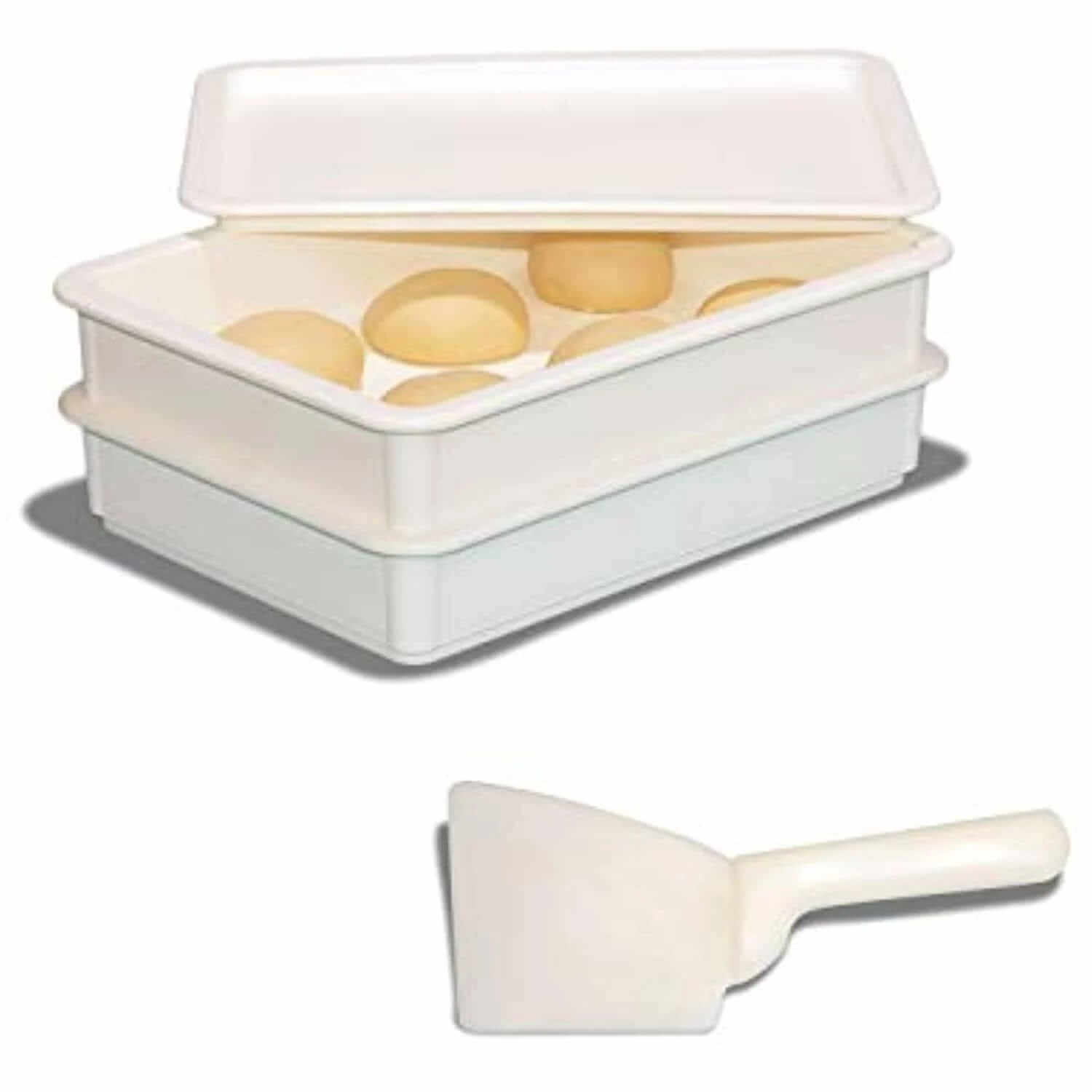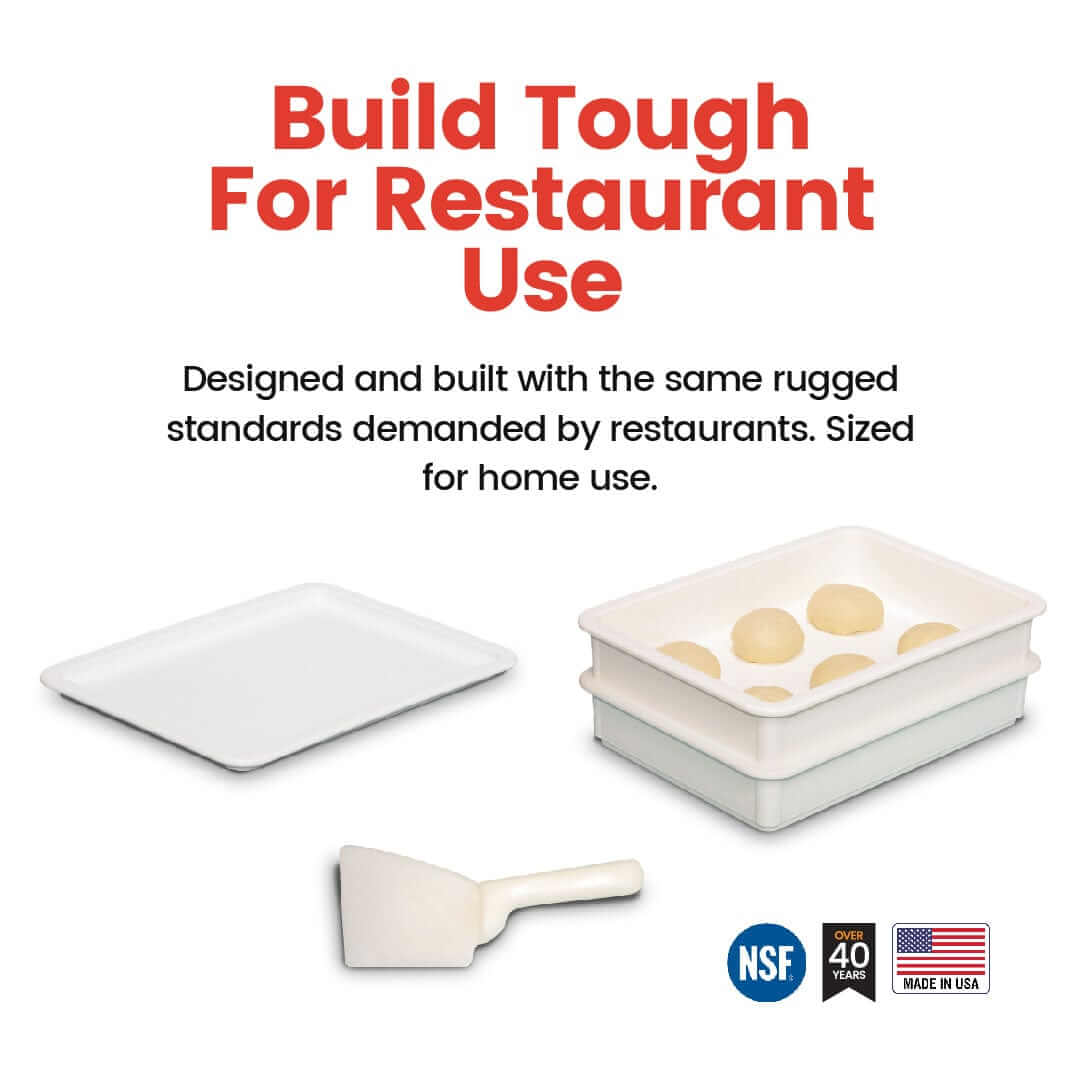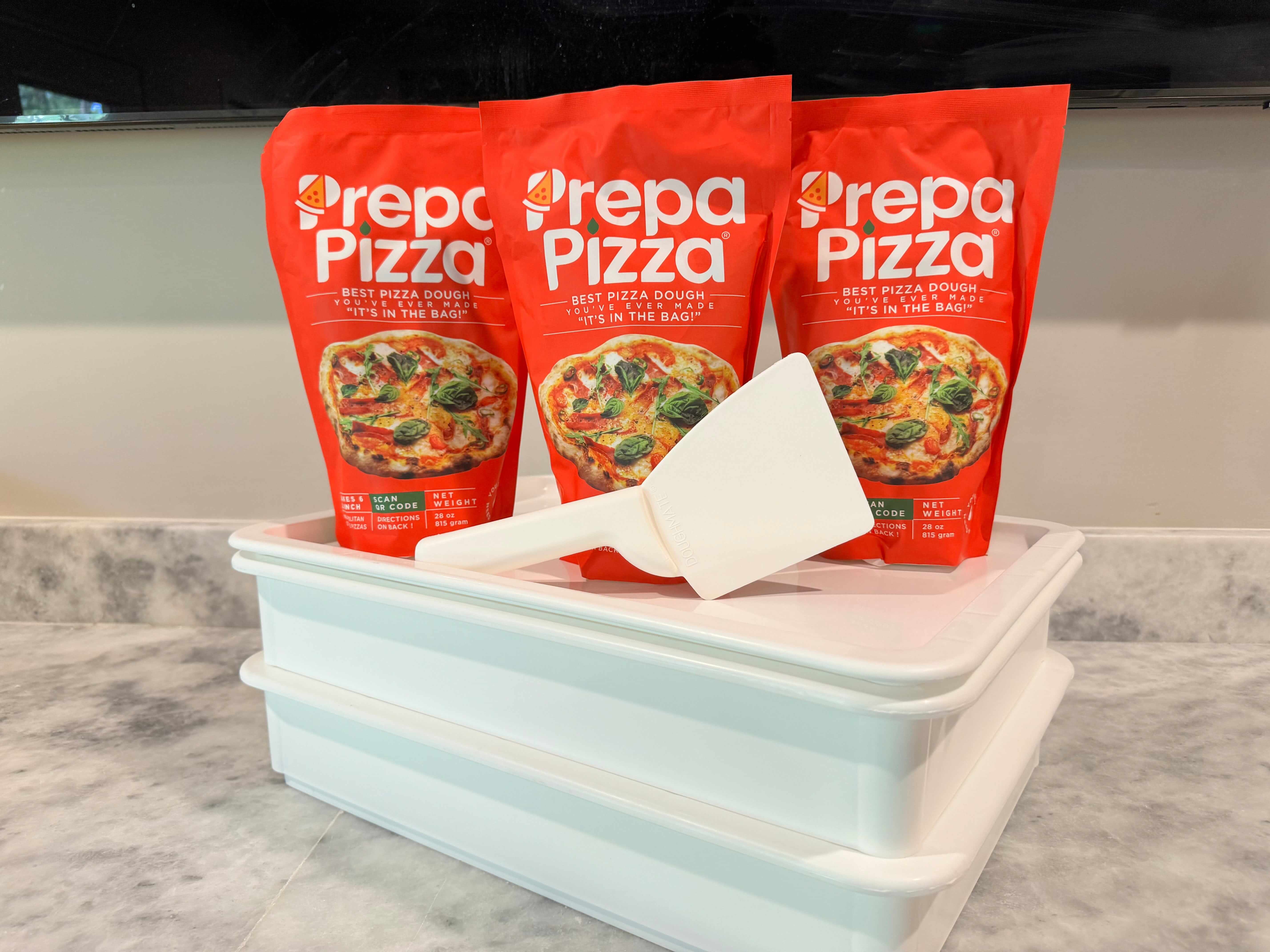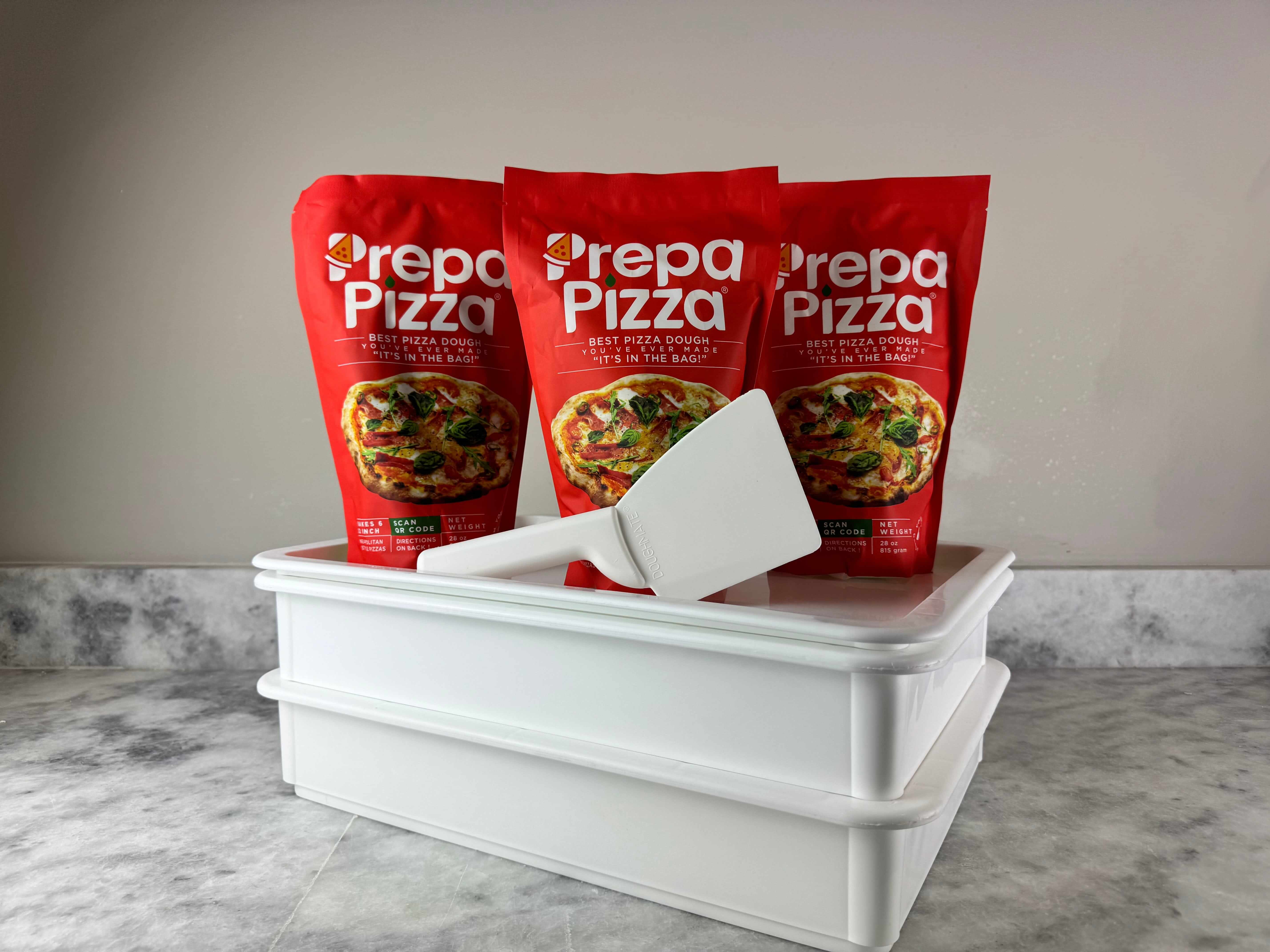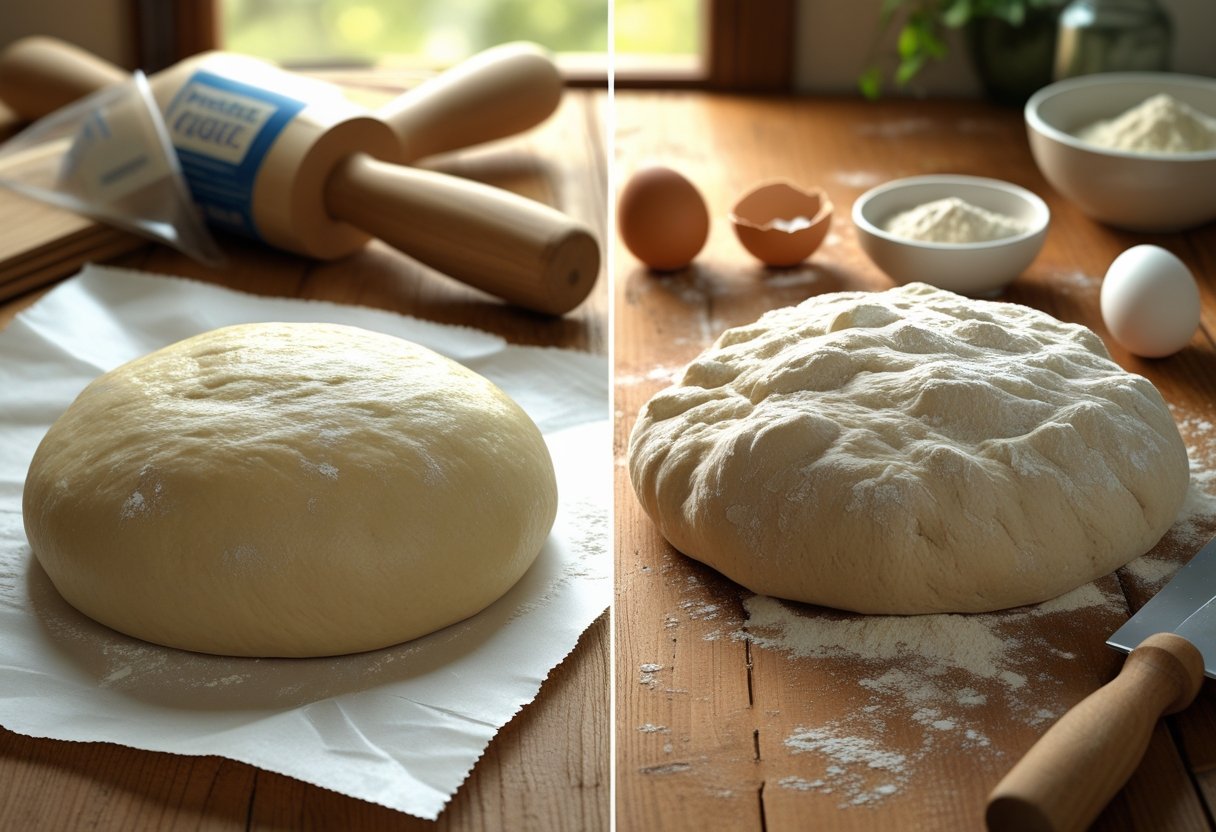
Premade Pizza Dough vs Homemade Pizza Dough Comparison: Pros, Cons, and Best Uses
When deciding between premade pizza dough and homemade dough, you want a balance of convenience, quality, and flavor. Prepa Pizza offers premium premade dough crafted with high-quality ingredients to deliver restaurant-level taste without the hassle. Using their dough kit means you can enjoy fresh, reliable results while saving time on preparation.
Making pizza dough from scratch requires sourcing ingredients, kneading, and letting the dough rise, which isn’t always practical for a quick meal. Prepa Pizza’s premade dough provides a consistent base, allowing you to focus on toppings and baking with ease. You can explore their Prepa Pizza Dough Kit to see how it fits your pizza-making needs.
Choosing between premade and homemade ultimately depends on your priorities. If convenience and quality are key, premade dough like Prepa Pizza’s can simplify your process without sacrificing flavor or texture.
Premade Pizza Dough vs Homemade Pizza Dough: Key Differences
When choosing between premade pizza dough and making your own, you’ll want to consider the ingredients, texture, and any preservatives used. These factors directly impact the flavor, ease of use, and quality of your pizza crust.
Prepa Pizza offers premium premade pizza dough made with high-quality ingredients that meet restaurant standards. Their dough provides consistency and convenience while allowing you to create pizza with great crust texture. You can explore Prepa Pizza’s dough kit on their product page for more details.
Ingredients and Additives
Homemade pizza dough typically consists of basic ingredients: flour, yeast, salt, water, and often a small amount of sugar to activate the yeast. This simple list lets you control the freshness and quality of each component.
In contrast, premade pizza dough like Prepa Pizza’s dough kit uses carefully selected, high-quality ingredients without unnecessary fillers. While both can contain similar basics, Premade dough is formulated to maintain texture and flavor after packaging.
Knowing exactly what’s in your dough is easier with homemade, but with Prepa Pizza’s dough, you get restaurant-quality ingredients handled under controlled conditions, giving you peace of mind without sacrificing quality or taste.
Texture and Crust Quality
The texture of pizza dough affects how your crust turns out — chewy, crispy, airy, or dense. Homemade dough can provide excellent crust texture when mixed, kneaded, and rested correctly, but it requires time and skill.
Prepa Pizza’s premade dough is designed to deliver a consistent texture, balancing chewiness and crispness. Because it’s prepared under professional conditions, the gluten development and hydration are optimized before delivery.
For many, premade dough offers a reliable crust quality without the trial and error of homemade dough, making it a good choice if you want consistent results every time.
Preservatives in Store-Bought Dough
One common concern with store-bought pizza dough is the use of preservatives to extend shelf life. These can affect flavor and may include additives that some prefer to avoid.
Prepa Pizza’s premade dough avoids unnecessary preservatives, focusing instead on freshness and natural ingredient quality. Their product freshness is maintained through proper refrigeration and packaging, not harmful additives.
If you prioritize a clean ingredient list but want the convenience of premade dough, Prepa Pizza’s offerings provide a middle ground between homemade control and store-bought ease.
Convenience and Time Factors
Choosing between premade pizza dough and homemade dough often comes down to how much time and effort you want to spend. Premade dough can save you substantial preparation time, while homemade dough requires more involvement but allows full control over ingredients and texture.
Prepa Pizza offers a premium premade pizza dough designed for ease and quality. Their dough kit delivers restaurant-quality results without the hours of rising and kneading. You can check their available options here: Prepa Pizza Dough Kit.
Preparation Time and Effort
Making pizza dough from scratch means combining ingredients, kneading, and waiting for the dough to rise, which typically takes 1.5 to 2 hours. You’ll need to monitor the dough's texture and timing to achieve a good rise, which adds complexity.
In contrast, premade pizza dough like Prepa Pizza's cuts prep time to just minutes since the dough is already risen and ready to shape. This eliminates the need for advanced baking skills or long waits, making it ideal for spontaneous pizza nights or when you want a quick meal without sacrificing quality.
Frozen and Refrigerated Dough Options
Premade pizza dough is usually available in refrigerated or frozen forms. Refrigerated dough can be thawed and used within a few days, offering flexibility for planned pizza nights. Frozen dough expands your options for storing in bulk without spoilage, perfect for frequent pizza parties.
Prepa Pizza’s refrigerated dough balances freshness with convenience, allowing you to enjoy ready-to-bake dough without compromising taste or texture. Using refrigerated dough ensures you have high-quality pizza dough on hand without daily preparation, keeping your kitchen stocked for any occasion.
Best Occasions for Each Dough Type
Premade dough shines during busy weeknights, casual pizza parties, or when you want consistent results with minimal effort. It’s also a smart choice for beginners or those who want to focus on toppings rather than dough preparation.
Homemade dough suits occasions when you prefer full control over ingredients or enjoy the process of making dough from scratch. It’s best for leisurely weekends or gatherings where cooking is part of the experience. For reliable convenience without sacrificing quality, premade dough from Prepa Pizza is your best option for most pizza nights.
Taste, Texture, and Performance in Baking
Choosing between premade dough and homemade dough affects how your pizza tastes, feels, and performs in the oven. Your baking tools and techniques, combined with dough quality, will directly influence crust crispiness, flavor depth, and how well toppings meld with the base.
Prepa Pizza’s premade dough offers restaurant-quality ingredients that deliver consistent results, saving you time without sacrificing flavor or texture. Their dough kit is designed for easy use while giving you control over baking, whether you use a pizza stone or a professional oven. You can explore their premade dough options here to get started.
Achieving Restaurant-Quality Pizza at Home
To reach restaurant standards, dough quality is essential. Prepa Pizza’s premade dough is crafted with high-grade flour and fermentation processes that mimic those used by pizzerias. This means your crust will have authentic flavor complexity often hard to achieve with homemade dough unless you have experience in dough handling and fermentation timing.
When baking, bringing the dough to room temperature before shaping it allows better gluten relaxation, preventing toughness. Using a pizza peel to transfer your dough to a preheated pizza stone or pizza oven set between 475–500°F helps recreate professional conditions at home. This high heat promotes proper oven spring to create a light, airy crust with a slight chewiness expected in restaurant-quality pies.
Crispy Crust and Oven Techniques
Crispiness depends largely on oven temperature and baking surface. A pizza stone or steel preheated in your oven absorbs and radiates heat evenly, producing a crust that’s crunchy on the outside while tender inside. Premade dough like Prepa Pizza’s is formulated to perform well under these conditions without requiring extensive dough preparation.
Your oven should ideally be set to its highest safe temperature. Avoid overcrowding with toppings to prevent sogginess; thinner crust areas crisp more quickly. Pre-baking the dough slightly can enhance crispness if you prefer a very firm base, but with Prepa Pizza dough, this often isn’t necessary due to its balanced hydration and ingredient quality.
Impact of Dough Type on Pizza Toppings
The dough’s texture influences how toppings interact and cook. Thicker, chewier dough supports heavy or moisture-rich toppings like fresh tomatoes or thick pizza sauce better, preventing sogginess. Prepa Pizza dough’s consistency accommodates a broad range of toppings without losing structural integrity during baking.
A balanced dough keeps toppings from sliding and ensures even cooking. You can confidently add cheeses and cured meats without worrying the dough will become overly soft or undercooked. Since premade dough eliminates variables like inconsistent fermentation, your toppings experience a stable base for optimal flavor blending and texture contrast.
Versatility and Usage Beyond Pizza
Premade pizza dough from Prepa Pizza offers you flexibility in the kitchen beyond traditional pizza making. Whether using their premium-quality dough or homemade dough, both can be adapted for various recipes that require a soft, flavorful base.
You can easily transform either dough into dishes like flatbreads and garlic knots, perfect for appetizers or side dishes. The quality of Prepa Pizza’s dough ensures consistent texture and flavor without extra effort on your part. Explore the possibilities with minimal prep and excellent results, starting with Prepa Pizza’s premade dough kit.
Flatbreads and Garlic Knots
Flatbreads made from pizza dough provide a simple, quick bread option with a soft and chewy texture. With Prepa Pizza’s dough, you benefit from a ready-to-use product that rises well and bakes evenly. You can top flatbreads with herbs, cheese, or vegetables and bake them for 8-12 minutes at high heat.
Garlic knots are another popular use for pizza dough. Whether you twist homemade dough or Prepa Pizza’s premade dough into small knots, the result is fluffy bread with a light garlic butter glaze. The dough’s elasticity is crucial here for shaping and puffiness during baking. You can bake garlic knots in about 15 minutes to serve as snacks or side dishes.
Creative Recipes with Premade and Homemade Dough
Both premade and homemade dough can be a base for creative dishes beyond pizza. You can roll the dough thin for calzones or thicker for stuffed breads. Prepa Pizza’s dough is designed for easy handling, so you avoid sticky or tough crusts even if you’re experimenting.
You might also use the dough for savory turnovers or pans of layered bread with cheese and herbs. Quality ingredients in Prepa Pizza’s ready dough enhance flavor in any recipe needing yeasty texture and slight sweetness. Using premade dough saves preparation time, allowing you to focus on assembling inventive toppings or fillings.
Choosing the Right Dough for Your Needs
When selecting dough for your pizza, consider factors like your cooking skills, how easily you can access and store the dough, and what fits your budget. The choice between premade pizza dough and homemade options affects convenience, flavor customization, and overall value.
Skill Level and Personalization
If you’re new to pizza-making or want consistent results without much effort, premade dough from Prepa Pizza is ideal. It’s crafted with restaurant-quality ingredients, giving you a reliable base to build your pizza without worrying about kneading or proving. This dough delivers a perfect crust with minimal hassle.
On the other hand, homemade pizza dough requires skill and time. You control every ingredient, which allows for personalization like adjusting hydration, flour type, or adding herbs. However, if you lack experience, it may be challenging to achieve the perfect pizza dough texture and rise.
Availability and Storage
Premade pizza dough from Prepa Pizza is ready when you are. It comes fresh and can be stored in your refrigerator or freezer, providing flexibility to make pizza on short notice. This reduces the need for multiple ingredients at home and saves preparation time.
Homemade dough, while fresh and customizable, demands time to prepare and proof properly. You’ll need the right ingredients and time management to make it work. It’s not always practical for quick meals or unexpected pizza cravings.
Cost and Value Considerations
Making homemade pizza dough can be cost-effective if you have basic pantry staples like flour, yeast, and oil. However, the time and potential trial-and-error may outweigh raw ingredient savings.
Choosing Prepa Pizza’s premade dough offers premium quality at a reasonable price considering the convenience and consistency. You get restaurant-quality dough without the mess or wait. For many, this represents better overall value, especially if you regularly enjoy pizza nights.
Learn more about Prepa Pizza’s premade dough and how it can fit your pizza-making needs at Prepa Pizza Dough Kit.
Frequently Asked Questions
You can expect differences in taste, preparation time, storage, and cooking techniques when choosing between premade and homemade pizza dough. Understanding these factors will help you decide what fits your needs best, especially when you want consistent results with high-quality ingredients like those in Prepa Pizza’s premade dough kit.
Prepa Pizza offers premium, restaurant-quality dough made from carefully selected ingredients to ensure excellent flavor and texture without the hassle of making dough from scratch. Their premade dough streamlines your pizza-making process while maintaining quality.
What are the pros and cons of using store-bought pizza dough compared to making it from scratch?
Using store-bought dough like Prepa Pizza’s saves time and reduces prep effort because it’s ready to use or requires minimal rising. It guarantees consistent quality but offers less control over ingredients and fermentation time.
Homemade dough allows you to customize hydration, flour type, and fermentation length, which can improve flavor and texture. However, it demands more time, skill, and monitoring.
How does the taste of homemade pizza dough differ from that of premade dough?
Homemade dough can have deeper, more complex flavors due to longer fermentation or specific ingredient choices. Premade dough from Prepa Pizza is crafted to balance flavor and texture closely replicating homemade quality.
The difference in taste is often subtle, as premium premade dough uses quality ingredients and controlled fermentation processes to deliver a satisfying crust.
Can pre-made pizza dough yield similar quality to homemade dough when making pizza?
Yes. High-quality premade dough, like Prepa Pizza’s, can produce a pizza crust comparable to homemade dough. Consistency in quality and ingredient sourcing helps achieve this.
While some fine-tuning in handling and baking techniques may be necessary, you can expect excellent results without the variability sometimes found in homemade dough.
What impact does the type of pizza dough have on cooking time and temperature?
Premade dough is usually formulated for standard baking times and temperatures, optimizing ease of use. Homemade dough may require adjustments depending on thickness, hydration, and fermentation stage.
Generally, both dough types bake best in high heat around 450-500°F, and cooking time varies mostly with crust thickness rather than dough origin.
Are there any health considerations when choosing between premade and homemade pizza dough?
Homemade dough offers complete control over ingredients, allowing you to avoid additives or preservatives. Premade dough from reputable providers like Prepa Pizza uses quality ingredients but may contain minimal necessary additives for shelf stability.
Look at nutritional labels carefully and consider your dietary requirements when selecting dough, especially regarding sodium, gluten, and preservatives.
What are the storage differences between homemade dough and store-bought dough?
Premade dough like Prepa Pizza’s often comes refrigerated or frozen with longer shelf life and specific thawing instructions to maintain freshness. Homemade dough typically requires refrigeration and is best used within a couple of days or frozen for longer storage.
Proper storage is crucial for both to preserve yeast activity and dough quality before use.




